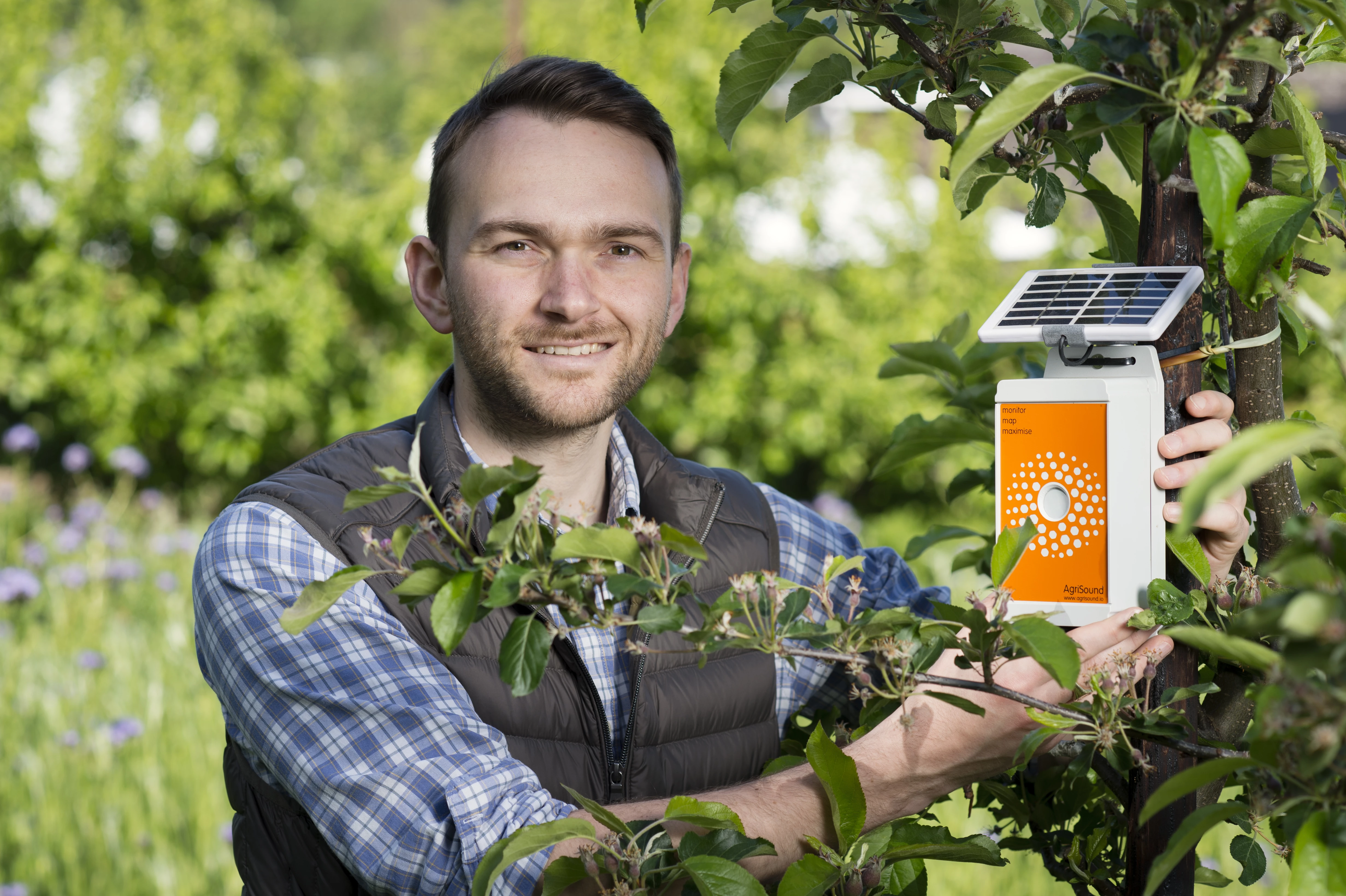
York Agri-tech business set out to save nationally 'rare' bee
The Species Recovery Trust has teamed up with industry-leading insect biodiversity innovator, (York-based) AgriSound, in a cutting-edge AI-driven project that aims to detect and protect a nationally rare and declining species of mining bee that has a hopping flight pattern when collecting food.
The small, black, solitary Tormentil mining bee which ‘hops’ as it distinctively flies between flowers while gathering pollen and nectar and is codependent on just a single type of flower - Tormentil. This quirky bee could be saved from ultimate extinction thanks to the development of a groundbreaking new algorithm using the latest AI machine learning technology.
The Species Recovery Trust’s project to monitor and protect the rare Tormentil mining bee is focused on the York Heathlands and North Yorkshire Moors. This species of bee has been in drastic decline over recent years and has been lost from 50% of its former sites since 1970s.
The Tormentil mining bees’ demise is being hastened by the loss of habitats rich in Tormentil plants and sandy bare ground areas where it nests. Loss of heath and moorland areas to agriculture, overgrazing and scrub encroachment has resulted in a decline of tall Tormentil plants and sandy areas, restricting the bee to a small number of sites, and therefore the Trust has found it very hard to reliably monitor.
The Trust turned to agritech start-up, AgriSound to come on board with the project to develop a bespoke and groundbreaking algorithm, to integrate with their unique pollinator-tracking technology, in order to improve and quantify efforts to monitor and save this bee.
Using AgriSound’s ‘Polly’ and its new, specifically developed algorithm, the resulting data is allowing the health and activity of the Tormentil mining bee to be accurately monitored enabling the Species Recovery Trust to deploy the most appropriate interventions and care for this rare and endangered species of bee.
Using bioacoustics is a highly novel approach to protecting and conserving insects, but one AgriSound is expert at and is able to develop species specific algorithms for.
Its highly successful Polly bioacoustic listening devices are increasingly being used in commercial agriculture and by food producers as well across spaces utilising biodiversity conservation. They are revolutionising commercial pollination, helping increase crop yield and providing the data crucial, not only to help protect biodiversity, but also to allow organisations to demonstrate positive impacts of actions for ESG reporting metrics.
To track a species such as the Tormentil mining bee, AgriSound’s approach was to catch and record the bee, using the latest AI (machine learning) to learn from the data to develop a bioacoustic algorithm that can detect the bee.
Once AgriSound’s scientists had recorded the tiny snippets of ‘hopping flight’ sounds, these were fed into to its AI machine learning programme, which learnt and now understands how it sounds and it was able to create the algorithm that will help the Species Recovery Trust track and gather the necessary data on the bees in the wild.
Access to this data is what will allow the Species Recovery Trust to understand which areas are best to protect and develop, in order to help protect populations and boost local biodiversity. Currently, just under thirty Pollys will be distributed across the York Heathlands and North Yorkshire Moors in a bid to track these insects.
Casey Woodward, founder, and CEO of AgriSound, said: “AgriSound is working, more than ever, on projects that help detect and protect rare and endangered species, and with AI advances we are increasingly developing new, bespoke algorithms to help detect and protect a growing list of species, such as the Tormentil mining bee, that are often in decline, and can benefit from intervention the most.
“We’re proud to be continually developing our AI technology to provide important information for biodiversity development, provide crucial data to help companies meet ESG regulations and now also develop unique algorithms for species protection too.”
By Mark Adair – Correspondent, Bdaily
- Add me on LinkedIn and Twitter to keep up to date
- And follow Bdaily on Facebook, Twitter and LinkedIn
- Submit press releases to editor@bdaily.co.uk for consideration.
Looking to promote your product/service to SME businesses in your region? Find out how Bdaily can help →
Enjoy the read? Get Bdaily delivered.
Sign up to receive our popular Yorkshire & The Humber morning email for free.






 A legacy in stone and spirit
A legacy in stone and spirit
 Shaping the future: Your guide to planning reforms
Shaping the future: Your guide to planning reforms
 The future direction of expert witness services
The future direction of expert witness services
 Getting people into gear for a workplace return
Getting people into gear for a workplace return
 What to expect in the Spring Statement
What to expect in the Spring Statement
 Sunderland leading way in UK office supply market
Sunderland leading way in UK office supply market
 Key construction developments in 2025
Key construction developments in 2025
 Mediation must be part of planning process
Mediation must be part of planning process
 From apprentice to chief financial officer
From apprentice to chief financial officer
 Don't stifle growth with apprenticeship cuts
Don't stifle growth with apprenticeship cuts
 The start-up landscape: What lies ahead in 2025
The start-up landscape: What lies ahead in 2025
 JATCO adds welcome drive to automotive sector
JATCO adds welcome drive to automotive sector